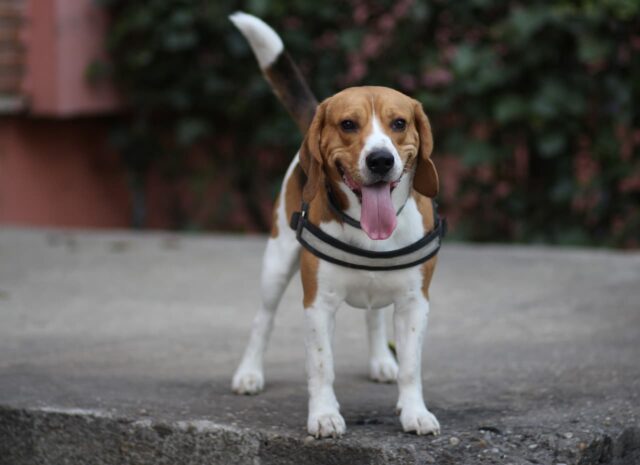 Shutterstock
Shutterstock
Flatulence in dogs can be a common issue, often causing amusement, embarrassment, or concern for their owners. While all dogs can experience gas, some breeds are more prone to excessive flatulence due to their diet, digestive systems, or specific anatomical features like shorter snouts. These gassy breeds might produce more frequent or more potent emissions, making them the prime candidates for earning a reputation as the “gassiest.” Here are ten dog breeds known for farting the most, listed in descending order from the least to the most notorious gas producers.
French Bulldog
 Shutterstock
Shutterstock
French Bulldogs, or “Frenchies,” are small dogs with distinctive bat-like ears and compact bodies. They are a brachycephalic breed, meaning they have a short snout and flat face. This anatomical feature can lead to swallowing more air when they eat or drink, contributing to increased flatulence. French Bulldogs are also known for having sensitive stomachs, and dietary changes can easily upset their digestive systems. While they are affectionate and playful, their gassiness can sometimes be overwhelming. Owners of French Bulldogs often need to be mindful of their diet, avoiding foods that can exacerbate gas production.
Pug
 Shutterstock
Shutterstock
Pugs are another brachycephalic breed known for their endearing faces and charming personalities. However, their short snouts also make them prone to swallowing air, leading to excessive flatulence. Pugs have a strong appetite and are not particularly selective about what they eat, which can contribute to their gassiness. Additionally, they are prone to obesity, which can further exacerbate digestive issues. Pug owners often find themselves dealing with frequent bouts of flatulence, and managing their diet is crucial to minimizing this issue. Despite their gassy tendencies, Pugs are beloved for their affectionate nature and playful antics.
Boxer
 Shutterstock
Shutterstock
Boxers are energetic and playful dogs known for their strong build and expressive faces. They have a deep chest and a tendency to gulp air when they eat or drink, which can lead to flatulence. Boxers are also known for having sensitive digestive systems, and certain foods can easily upset their stomachs. This breed’s love of food and tendency to eat quickly can further contribute to gas production. While their gassiness can sometimes be overwhelming, Boxers are loyal and affectionate companions. Owners often need to monitor their diet closely to reduce flatulence and ensure their Boxer remains healthy.
Boston Terrier
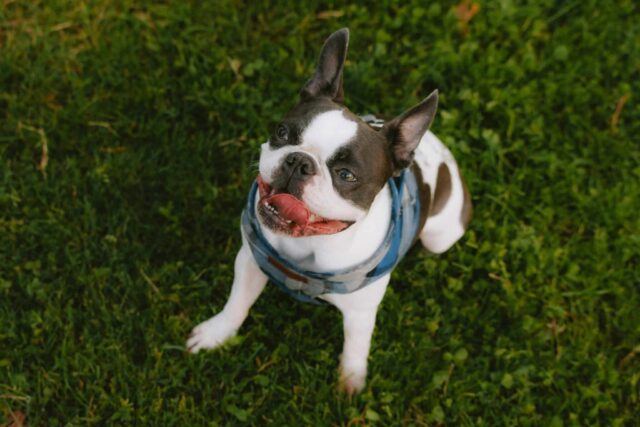 Shutterstock
Shutterstock
Boston Terriers, often called the “American Gentleman,” are small dogs with a tuxedo-like coat pattern and a short snout. Like other brachycephalic breeds, Boston Terriers are prone to swallowing air, leading to increased flatulence. They are also known for having sensitive stomachs and can be prone to digestive issues. Boston Terriers enjoy a variety of foods, but owners need to be cautious about their diet to avoid exacerbating gas production. Despite their gassy tendencies, Boston Terriers are known for their friendly and outgoing personalities, making them popular family pets.
Beagle
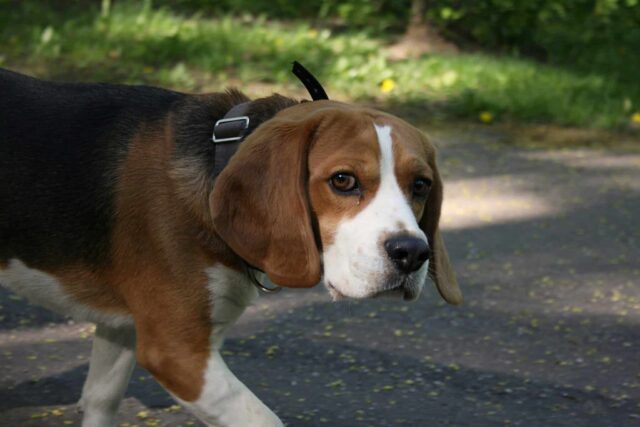 Shutterstock
Shutterstock
Beagles are small hounds known for their excellent sense of smell and insatiable appetite. This breed is notorious for eating anything they can find, which can lead to digestive issues and increased flatulence. Beagles have a strong prey drive and love to explore, often leading them to eat things they shouldn’t. Their love of food, combined with a sensitive digestive system, makes them prone to gas. Beagle owners often need to be vigilant about their diet and ensure they are eating high-quality, digestible foods. Despite their gassy tendencies, Beagles are affectionate and loyal companions.
Shih Tzu
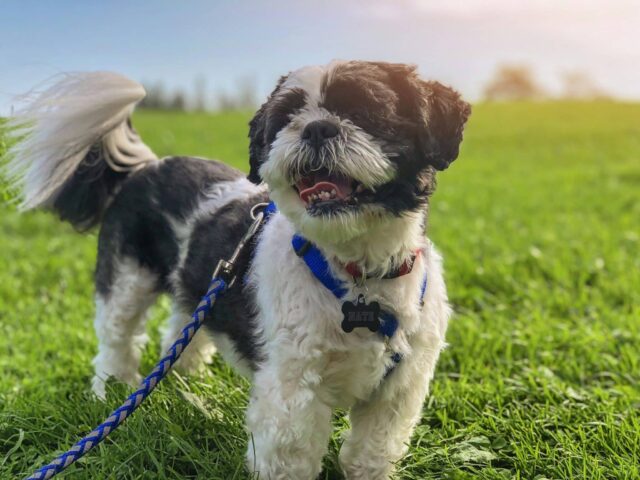 Shutterstock
Shutterstock
Shih Tzus are small, regal-looking dogs known for their luxurious coats and affectionate nature. Despite their aristocratic appearance, Shih Tzus can be quite gassy. This breed has a sensitive digestive system and can be prone to food allergies or intolerances, which can lead to flatulence. Shih Tzus often enjoy a variety of foods, but sudden dietary changes or low-quality ingredients can upset their stomachs. Owners need to be mindful of their diet and avoid foods that can trigger gas production. Despite their gassiness, Shih Tzus are beloved for their friendly and affectionate personalities.
Dachshund
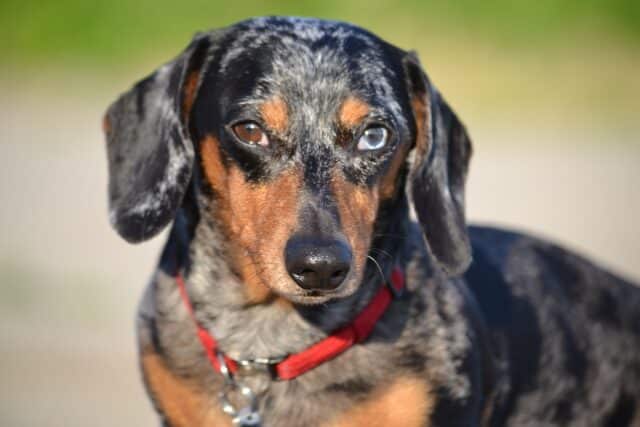 Shutterstock
Shutterstock
Dachshunds, known for their long bodies and short legs, are lively and curious dogs. They are also prone to digestive issues and flatulence. Dachshunds love food and are often known to eat quickly, which can lead to swallowing air and increased gas production. This breed’s long, low body shape can also contribute to digestive issues, making them more prone to flatulence. Dachshund owners often need to monitor their diet closely and avoid feeding them foods that can exacerbate gas production. Despite their gassy tendencies, Dachshunds are playful and affectionate companions.
Labrador Retriever
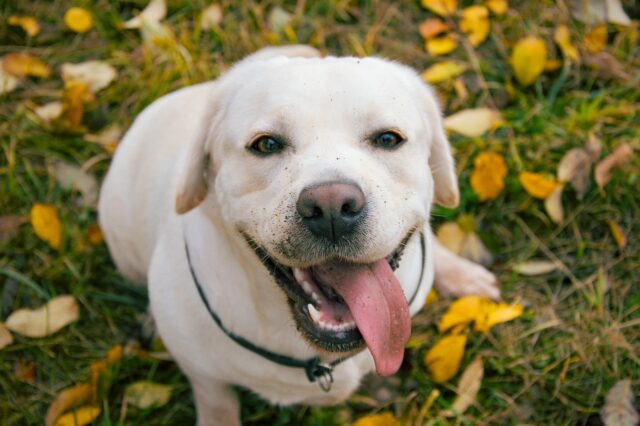 Shutterstock
Shutterstock
Labrador Retrievers are one of the most popular dog breeds, known for their friendly and outgoing personalities. They are also known for their insatiable appetites and tendency to eat anything they can find. This breed’s love of food and tendency to overeat can lead to digestive issues and increased flatulence. Labradors are prone to obesity, which can exacerbate digestive problems and contribute to gassiness. Labrador owners often need to be vigilant about their diet, providing high-quality food and avoiding overfeeding. Despite their gassy tendencies, Labradors are beloved for their affectionate and loyal nature.
English Bulldog
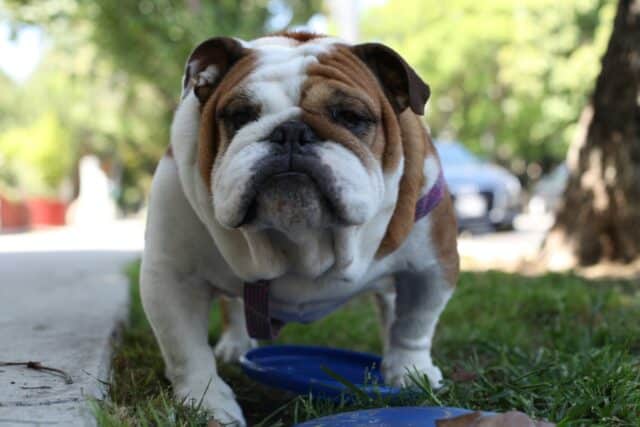 Shutterstock
Shutterstock
English Bulldogs are known for their distinctive wrinkled faces and stocky build. They are a brachycephalic breed, which means they have a short snout and flat face, making them prone to swallowing air and increasing flatulence. Bulldogs also have sensitive digestive systems and can be prone to food allergies or intolerances, which can lead to excessive gas. This breed’s love of food and tendency to overeat can further exacerbate the issue. English Bulldog owners often need to monitor their diet closely and avoid feeding them foods that can trigger gas production. Despite their gassiness, Bulldogs are beloved for their affectionate and gentle nature.
Basset Hound
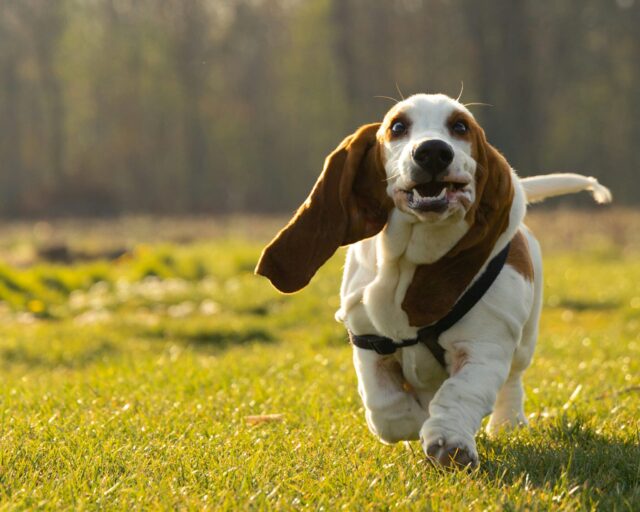 Shutterstock
Shutterstock
Basset Hounds are medium-sized dogs known for their long ears, droopy eyes, and distinctive low-slung bodies. They are also known for their incredible sense of smell and insatiable appetite. Basset Hounds are notorious for being one of the gassiest dog breeds, often producing potent emissions. This breed’s love of food and tendency to overeat can lead to digestive issues and increased flatulence. Basset Hounds have a slow metabolism and can be prone to obesity, which can exacerbate digestive problems and contribute to gassiness. Owners often need to monitor their diet closely and provide high-quality food that is easy to digest. Despite their gassy tendencies, Basset Hounds are affectionate and loyal companions, known for their friendly and laid-back personalities.
The Gassiest Breeds
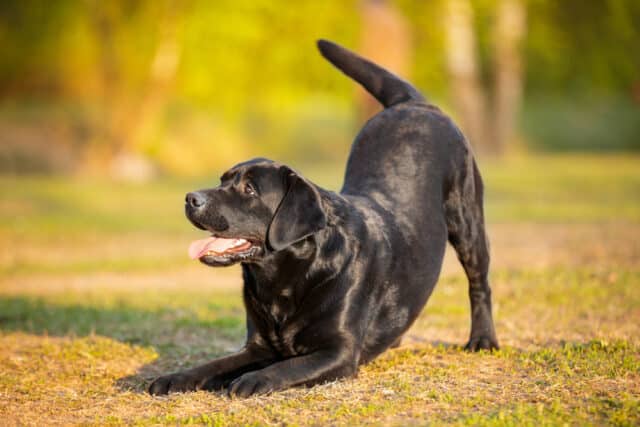 Shutterstock
Shutterstock
These dog breeds are known for their propensity to produce flatulence, often causing amusement or discomfort for their owners. While their gassiness can be attributed to various factors, including diet, anatomy, and digestive health, owners need to manage their dogs’ diets and monitor their health to minimize the issue. Providing high-quality, easily digestible food, avoiding overfeeding, and being mindful of potential food allergies or intolerances can help reduce flatulence in these breeds. Despite their gassy tendencies, these dogs are beloved companions, bringing joy and laughter to their families with their unique personalities and endearing traits.
 Toledo, United States.
Toledo, United States.